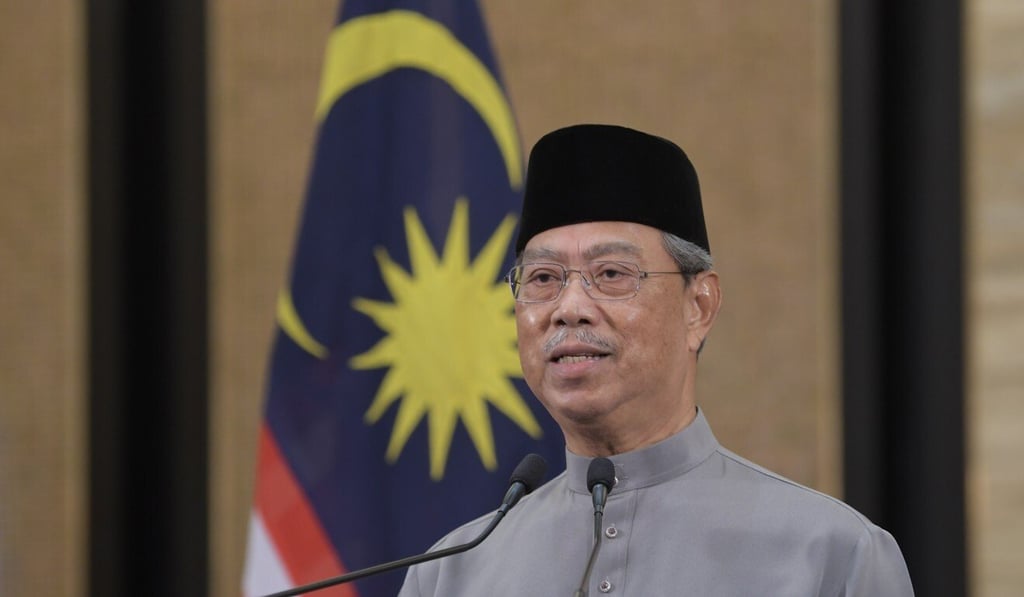Coronavirus: Malaysia to reopen economy on May 4, says Muhyiddin
- Nearly all economic sectors to reopen, subject to conditions, says Prime Minister Muhyiddin Yassin, but controls to remain on social gatherings
- Move is sign of focus switching to rescuing business and saving jobs

Addressing the country on Friday morning, Prime Minister Muhyiddin Yassin said nearly all economic sectors would reopen, subject to conditions, after more than 40 days of a movement control order that had shut schools and non-essential businesses and banned social visits and mass gatherings.
Social gatherings, however, would still be controlled, schools would remain shut and interstate travel remained banned, he said.
“Stopping meaningful economic activity means stopping the country’s source of income. Taxes cannot be collected, the industry cannot grow, economic growth is stunted and what we particularly want to avoid is businesses being forced to close and workers losing their jobs,” Muhyiddin said.
He warned that some countries had seen an increase in Covid-19 cases when quarantine measures were eased and said some businesses – including cinemas, karaoke joints, clubs and conferences or exhibitions – would still not be allowed to operate.
Under the relaxed movement control order, interstate travel remained banned, said Muhyddin, meaning that Malaysians would not be able to travel to their hometowns for the Eid celebrations at the end of May.

“We must find ways to balance between healing the nation’s economy and addressing Covid-19,” said Muhyiddin, adding that stringent health standards would be implemented, such as social distancing for people dining-in at restaurants.